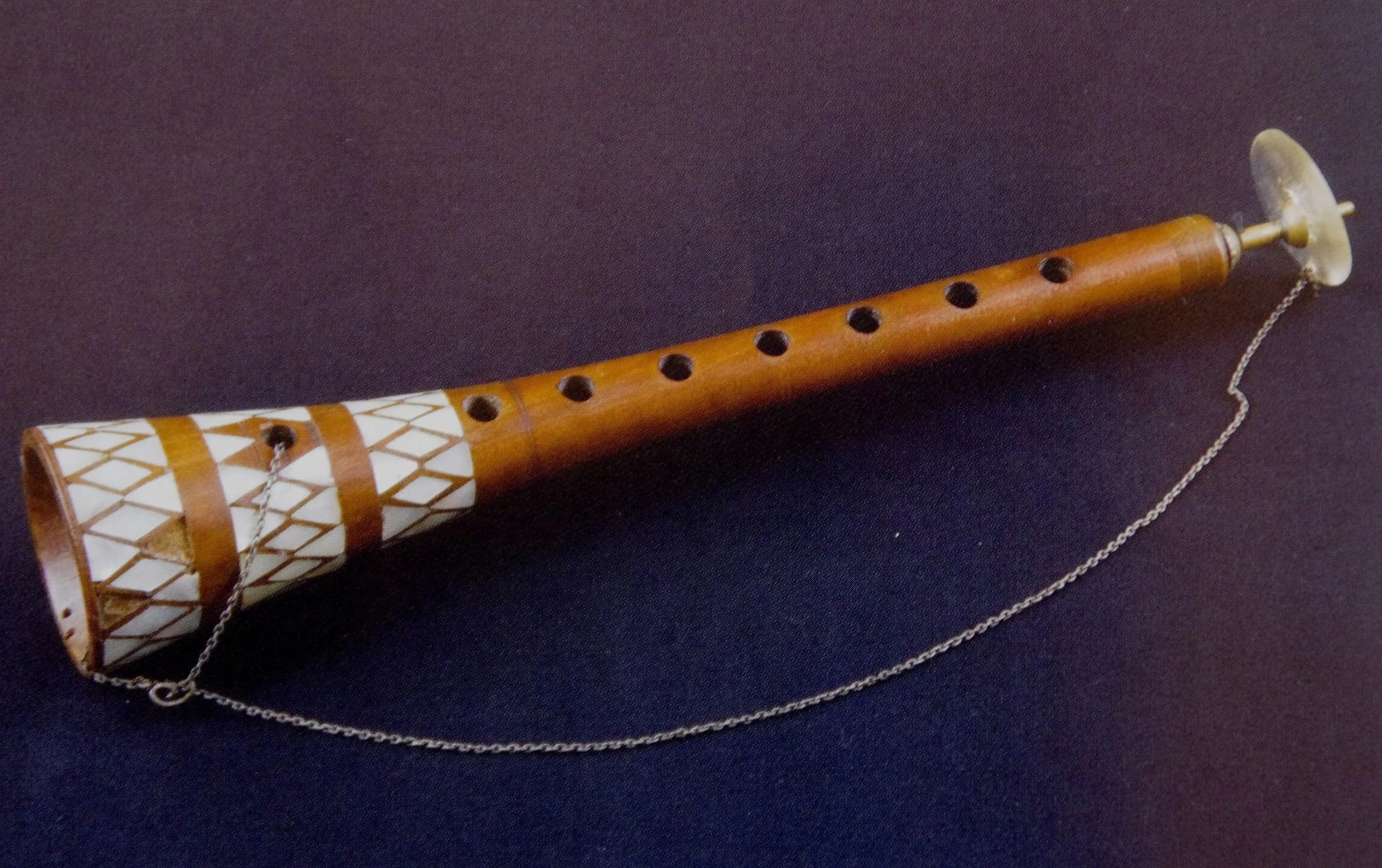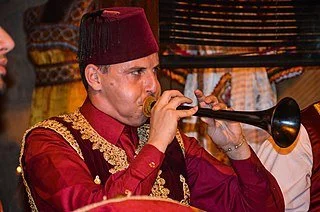You will know it as soon as heard. With it distinctively high, reedy, resonant and evocative sound, this short folk, conical-shaped oboe of Arab origins can be heard from Turkey across south-east Europe and parts of Asia made of wood with a double reed. It’s an ancient instrument, possibly with Iranian origins, but became widespread particularly from the 6th century A.D. with the gradual spread of Islam.
The name of this aerophone is derived from Persian meaning banquet, feast and reed pipe, where it is often played, particularly at weddings, and name variants include surnay, birbynė, lettish horn, zurla or zurle, surla, sornai, zournas, zurma, or zurnes.
As well as the conical body, made from slow-growing varieties such as apricot or peach trees, it is usually 30-45cm in length, but can be longer, and with seven finger holes and a thumb hole. The key component is the reed, which resembles a double fan made and is regularly replaced and often made by the player from a trimmed piece of reed pipe, straw, maize or barley stalks. It fits into a small brass tube called the staple which helps connect the reed to the wooden body of the instrument, channel the players breath and maximise volume. A pirouette or rosette made of metal, mother of pearl or ivory, is a small disc against which the player’s lips blow.
Zurna player
The pitch of the zurna can vary according to size, shape and material, from the longest and lowest, the kaba zurna, used more in western Turkey and Bulgaria, the shortest (and highest-pitched), which can be made of bone is commonly played in Messolonghi. Here are some professionals demonstrating:
The zurna is often played alongside a davul, tapan, atabal or tabl, which is a large double-headed drum, often played with mallets. Both instruments are very common at Turkish, Greek and Cypriot weddings:
Played variously as in fast melodies or as a drone instrument, the zurna’s ancient heritage often accompanies traditional dance and movement. Here’s an Albanian example:
And the zurna is often the sound that complements wresting traditions in Greek Macedonia, or as shown here Turkish traditional oil wrestling in Edirne, here played by Metin Yanyacı and Rahmi Yanyacı:
So then, any more zurna music or cultural references come to mind? Feel free to share any further ones from songs, or even film, art or other contexts in comments below.
You can also get in touch the contact page, and also visit us on social media: Song Bar Twitter, Song Bar Facebook. Song Bar YouTube. and Song Bar Instagram. Please subscribe, follow and share. New to comment? It is quick and easy. You just need to login to Disqus once. All is explained in About/FAQs ...
Song Bar is non-profit and is simply about sharing great music. We don’t do clickbait or advertisements. Please make any donation to help keep the Bar running:



